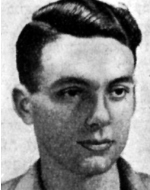Son of Hanna (the daughter of the veteran Hebrew educator Rabbi Kalman-Nahum Shefer) and the poet and teacher Reuven Grossman (son of the Jewish writer and teacher Rabbi Aharon Leib), was born on April 6, 1927 in Brooklyn, New York. In the days of the 1929 riots, when his parents were two and a half years old, his parents immigrated to Israel, and after a visit to the kindergarten he was educated at the Herzliya Gymnasium in Tel Aviv until he graduated at the age of 17. And in his ability to collect material, arrange it beautifully, in terms of form and content, and to work properly, and in the higher grades he showed a remarkable scientific maturity in his writings. And in the “Beit Hatalmid” (where students from the Gymnasium attended classes), initiated and edited series for youth broadcasts on Jerusalem Radio and produced a pamphlet entitled “New Hebrew Literature: Essays, Assessments and Reviews” that helped prepare matriculation examinees throughout the country. During the Second World War, he worked with great diligence on a collection of information and photographs that he attached in a large album form, as a basis for extensive research, and he wrote notes and wrote stories, and some of those found hidden after they fell, Borrowed from a sense of responsibility and humility. From the early age he was active in the ranks of the Haganah, worked in various sports and received training as a Hagam instructor, and after completing his studies at the Gymnasium, he served as a guard at Ashdot Ya’akov. After completing his military service at the Hebrew University of Jerusalem, he received a degree in history, political economics, and international relations, where he studied literature and journalism after graduating from university. He was a high school counselor in high school At Beit Hakerem and accepted by all its students and loved by all its friends and teachers for its responsibility, punctuality, modesty and gentleness. On November 29, 1947, the day of the UN declaration of partition, he passed the first baptism of fire, taking part in an action against rioters who looted Jewish property on Princess Mary Street in Jerusalem a few days later, on December 5, 1947, He took part in many dangerous battles in the Jerusalem neighborhoods of Sheikh Jarrah and Gush Etzion, and before one of the battles, on January 12, 1948, at 14.00, he wrote on a small note The will of the five sections: 1 “. Yekavroni in Nahalat Yitzhak, Tel Aviv; 2. Do not write anything about me in the newspaper (Divrei Haver et al.); 3. My salary and the compensation my family will receive – to establish a fund for the purchase of rifles; 4. My property to be returned to the family; 5. Do not tell me; The will was found in the headquarters, where he left it, a few weeks after they fell and was transferred to her confederation. When the rioters hit the Jewish transport to Atarot and killed our men and the revenge of our people on the Arab transport from Ramallah, it did not succeed, and at the head of its 19 men on the night of the ” (March 4, 1948) to an ambush in the rocky area north of Atarot, surrounded by hundreds of Arabs, But Noam continued to encourage his friends to continue the battle until their breathAnd so he and most of his men fell. Only three days later they were all brought for burial in Sanhedria. After his fall, he was granted the rank of captain. In recognition of his memory, his name was called on his company. At the end of the year, the family received the name Avinoam. On the 5th of Elul 5711 (September 6, 1951), he was transferred along with his fallen men to the eternal rest of the military cemetery at Mount Herzl in Jerusalem. Writers and friends, and a collection of his own poems, poems and poems. A cantata for some of the songs in “Eli Daui” and the booklet was published by the Center for Culture and Information of the Hebrew Workers Union in Israel. The firing of his name in Israel and abroad decided to establish a guest house for viewers called Beit Noam.
